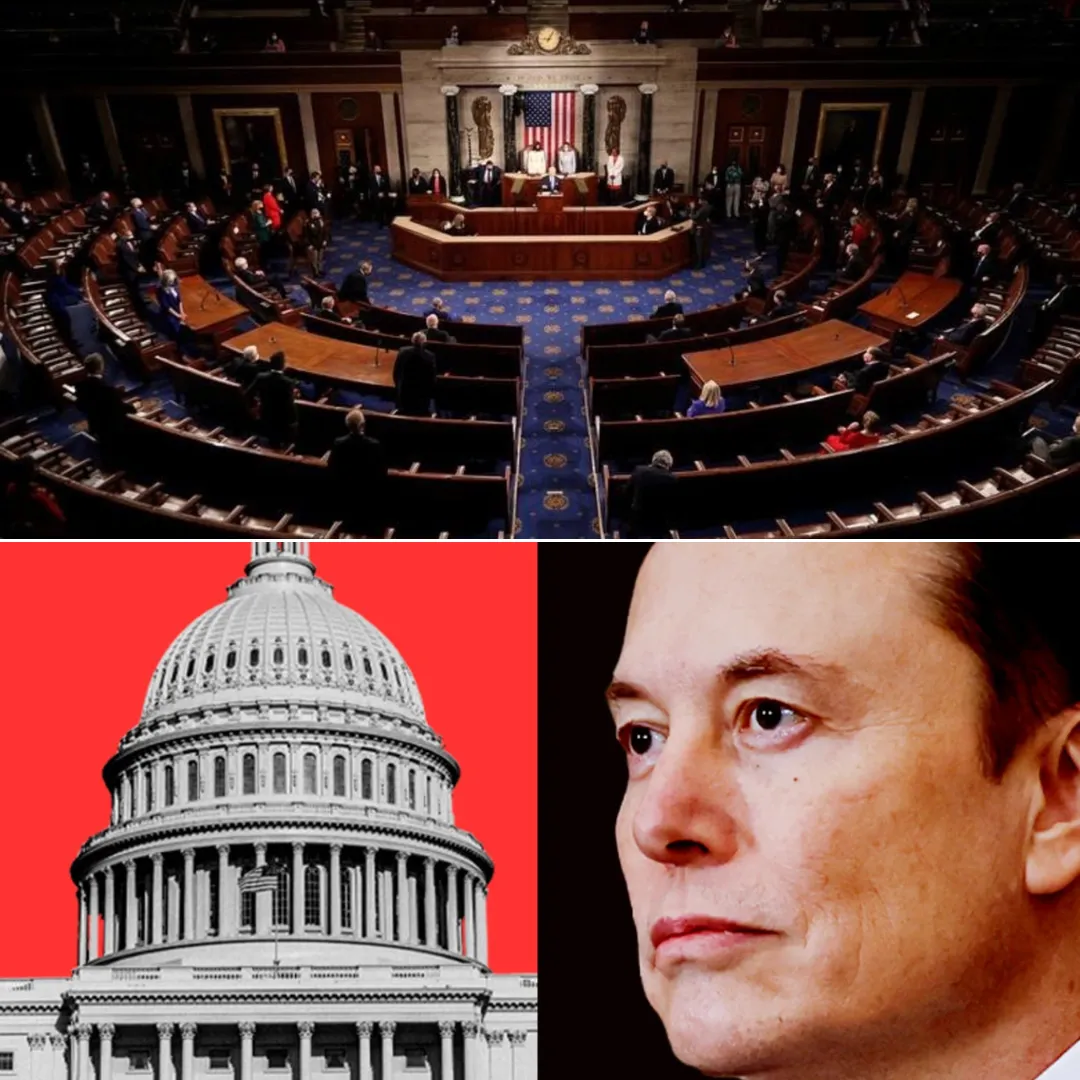GOP Senators Scramble, Doubt Trump’s Shutdown Maneuvers
As the government shutdown continues to drag on, Republican senators find themselves in a difficult and uncomfortable position. While they publicly support President Trump’s leadership, many GOP lawmakers have expressed concerns about his latest moves to bypass traditional congressional processes in order to ensure military service members are paid.
The situation has become a brewing storm within the party, highlighting the divide between supporting Trump’s bold decisions and holding him accountable for overreaching executive actions.
In recent days, Senate Republicans, some of whom are close to Trump, have been increasingly vocal about their unease with the president’s unorthodox handling of the shutdown.
The administration has directed Secretary of Defense Pete Hegseth to use “all available funds” to ensure troops receive their paychecks during the shutdown.
While this quick action to protect military personnel is undoubtedly commendable, many Republican senators have raised alarms about the long-term consequences of circumventing Congress’s “power of the purse,” a power constitutionally granted to the legislative branch.
When the Trump administration decided to ensure that U.S. troops received their paychecks despite the shutdown, it didn’t follow the usual process of requesting approval from Congress to reprogram federal funds.
Instead, Trump instructed Hegseth to dip into unspent, unobligated funds—approximately $8 billion earmarked for research and development, primarily for defense purposes.
This move, while ensuring that active-duty military personnel were paid, raised serious questions about the legality and transparency of the action.

Republican senators, many of whom have long championed the principle of limited government and fiscal responsibility, are now questioning whether Trump had the legal authority to reallocate these funds without Congress’s approval.
The traditional process, which requires a reprogramming request to be sent to Capitol Hill for review and approval, was bypassed. Several Republican lawmakers have expressed concern that this action could set a dangerous precedent, potentially undermining the legislative branch’s authority and creating a slippery slope for executive overreach.
One of the more notable voices in this debate is Senator Susan Collins (R-Maine), the chair of the Senate Appropriations Committee. Collins, who is up for re-election next year, has voiced her frustration over the lack of clarity provided by the White House regarding the funding sources used to ensure military pay.
In interviews, Collins has acknowledged that while she is grateful that the troops have been paid, she remains deeply concerned about the long-term impact of Trump’s decision to bypass Congress.
“We’ve been given two different explanations,” Collins said. “One is that it’s unobligated balances. One is that it’s taken from certain research and technology programs. But we don’t have the specifics. We have asked for the specifics.”
Collins’ comments underscore the frustration many Republicans feel about the lack of transparency and the potential consequences of Trump’s actions. While military pay is a top priority for many in Congress, especially those in leadership positions, the process by which those funds are allocated matters just as much.
Collins, a staunch defender of Senate authority, seems caught in the middle of an internal GOP debate over whether it’s acceptable for Trump to make unilateral decisions without proper oversight.
Senator Lisa Murkowski (R-Alaska) has also weighed in on the matter, raising concerns about the president’s actions. Murkowski, who has been a moderate voice within the GOP, expressed unease over the administration’s decision to repurpose funds for military pay without consulting Congress.

She pointed out that, traditionally, a reprogramming request would need to be approved by the Appropriations Committee and other relevant legislative bodies.
“I get that they say for the military pay for this pay period it comes out of … research and development technology [fund], but where? Is that taking it from projects that we have already identified? Maybe something’s really important to me. Where’s it coming from? We haven’t seen that,” she said.
Murkowski’s comments reflect a growing concern among Republicans who fear that Trump’s actions could open the door to executive overreach, especially when it comes to the allocation of federal funds.
The use of research and development funds to pay military personnel may seem like a temporary solution, but Murkowski’s questioning of where those funds are coming from highlights the lack of transparency in the process.
For many Republicans, ensuring that funds are used appropriately and with oversight is just as important as paying the troops on time.
Senator Patty Murray (D-Wash.), the vice chair of the Senate Appropriations Committee, also weighed in on the controversy. She voiced uncertainty about whether Trump’s actions were legally justified, calling into question the legality of repurposing federal funds without congressional approval.
“I do not know the answer to that question,” Murray said when asked about Trump’s legal authority. “But I don’t think the executive branch can just go around bypassing Congress.”
Murray’s comments reflect concerns across both sides of the aisle about the potential long-term impact of Trump’s actions. While Republicans may be hesitant to challenge the president’s decisions publicly, there is growing apprehension about the precedent that is being set.
The lack of clarity about what legal authority Trump is using to repurpose funds has led to a bipartisan push for more transparency and accountability.

The division within the GOP over Trump’s actions has put many Republican senators in a difficult position. On the one hand, they want to ensure that military personnel are paid during the shutdown, and many Republicans have praised Trump’s efforts to ensure that the troops are not left without pay.
On the other hand, the president’s actions raise serious questions about executive overreach and the lack of congressional oversight.
As the shutdown continues and the crisis deepens, many Republican senators are finding it harder to remain silent on the issue. Some are pushing for more transparency from the White House and demanding that Trump adhere to the traditional process for reallocating funds.
Others are concerned about the long-term consequences of Trump’s decision to bypass Congress and whether it will erode the authority of the legislative branch.
The battle over federal funding and the government shutdown is far from over. The political standoff has placed immense pressure on both parties to reach a deal and reopen the government.
While Trump’s actions have temporarily resolved the issue of military pay, the broader question of how to address the funding gap remains unresolved.
Republican senators are caught between supporting Trump’s efforts to ensure military pay and demanding that the executive branch respect the traditional process for reprogramming funds.
The conflict highlights the deepening divide within the GOP over the role of the executive branch and the balance of power between the branches of government.

As the government shutdown continues, the GOP is left grappling with its internal divisions. While Trump’s decision to ensure military pay has been praised by some Republicans, others are concerned about the long-term consequences of bypassing Congress’s power of the purse.
The debate over the legality of Trump’s actions and the use of federal funds without proper oversight is only likely to intensify as the shutdown continues.
Republican senators face a tough choice: support Trump’s short-term solution for paying the troops or stand up for the principles of oversight and congressional authority.
Either way, the shutdown has exposed the fractures within the GOP and the challenges of governing in an increasingly polarized political environment. As the crisis unfolds, the Republicans must navigate these internal divides while addressing the pressing needs of the American people and ensuring that the government remains functional in the face of ongoing uncertainty.
Related articles
The Latest
Pelosi Snaps at Reporter Over January 6 Guard Question
On October 15, 2025, former Speaker of the House Nancy Pelosi found herself once again at the center of controversy, this time due to a fiery confrontation with Lindell...
Newsom Faces Renewed Scrutiny Over Past Affair Scandal
As California Governor Gavin Newsom’s national profile rises, so too does renewed scrutiny over a scandal that once threatened to derail his political career. With spe...
Meghan McCain Defends Election Results Amid Rising No Kings Protests
In the midst of growing national tensions surrounding the “No Kings” protest movement, prominent political commentator Meghan McCain has stepped into the spotlight with...
General Flynn Claims Pence and Ryan Plot to Remove Trump
In a recent interview, General Mike Flynn made explosive claims about a covert effort by two prominent Republican figures—Mike Pence and Paul Ryan—to remove President D...
GOP Senators Scramble, Doubt Trump’s Shutdown Maneuvers
As the government shutdown continues to drag on, Republican senators find themselves in a difficult and uncomfortable position. While they publicly support President Tr...

 Cohen Claims Trump Will Target Musk, But Trump’s Focus Remains on Strengthening America
Cohen Claims Trump Will Target Musk, But Trump’s Focus Remains on Strengthening America Elon Musk’s Proposal to Create The America Party Stirs Debate and Divides Opinions
Elon Musk’s Proposal to Create The America Party Stirs Debate and Divides Opinions Trump Demands Adam Schiff Face Prison for Alleged Mortgage Fraud in Explosive Political and Legal Clash
Trump Demands Adam Schiff Face Prison for Alleged Mortgage Fraud in Explosive Political and Legal Clash A Rare and Radiant Moment as First Lady at Independence Day Celebration
A Rare and Radiant Moment as First Lady at Independence Day Celebration






-1750489516-q80.webp)


